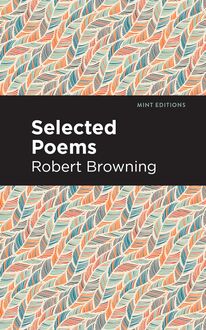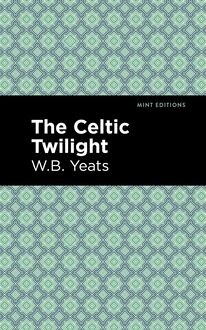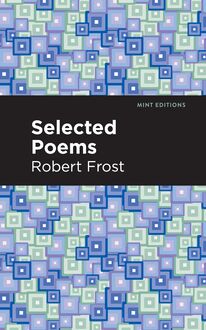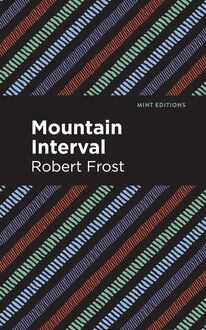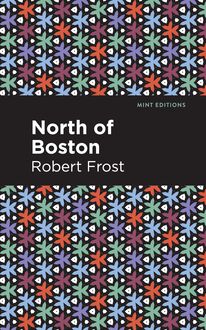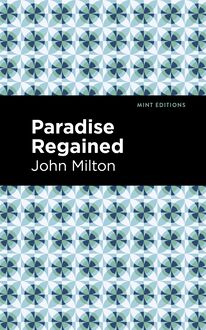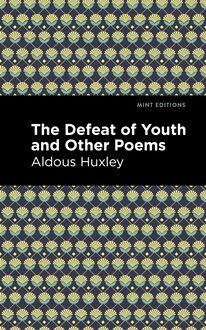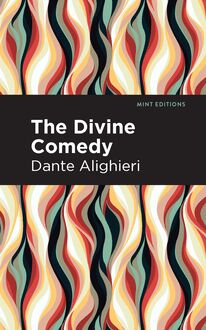-
 Univers
Univers
-
 Ebooks
Ebooks
-
 Livres audio
Livres audio
-
 Presse
Presse
-
 Podcasts
Podcasts
-
 BD
BD
-
 Documents
Documents
-
- Cours
- Révisions
- Ressources pédagogiques
- Sciences de l’éducation
- Manuels scolaires
- Langues
- Travaux de classe
- Annales de BEP
- Etudes supérieures
- Maternelle et primaire
- Fiches de lecture
- Orientation scolaire
- Méthodologie
- Corrigés de devoir
- Annales d’examens et concours
- Annales du bac
- Annales du brevet
- Rapports de stage
La lecture à portée de main
Vous pourrez modifier la taille du texte de cet ouvrage
Découvre YouScribe en t'inscrivant gratuitement
Je m'inscrisDécouvre YouScribe en t'inscrivant gratuitement
Je m'inscrisEn savoir plus
Vous pourrez modifier la taille du texte de cet ouvrage
En savoir plus

Description
The Flowers of Evil (1857) is a collection of poems by Charles Baudelaire. Translated into English by Cyril Scott in 1909, Baudelaire’s poems remain lively and idiosyncratic nearly two centuries after they came into existence. Comprised mostly of sonnets and short lyrics, The Flowers of Evil captures Baudelaire’s sense of the changing role of the poet in modern life. Rather than focus on beauty and other ideals, Baudelaire explores the totality of human experience—the good, bad, and ugly of life on earth. “When by the changeless Power of a Supreme Decree / The poet issues forth upon this sorry sphere, / His mother, horrified, and full of blasphemy, / Uplifts her voice to God, who takes compassion on her.” In his opening benediction, Baudelaire reverses the typical trope of invoking the muses or celebrating poetry as a divine gift. Instead, he depicts the poet as a being cursed, a “hideous Child of Doom.” Childhood for Baudelaire is a subject of particular interest, a time described, in his poem “The Enemy,” as “a ravaging storm, / Enlivened at times by a brilliant sun…” The youthful experience of melancholy clearly informs the poet’s outlook as an adult: “Time devours our lives, / And the enemy black, which consumeth our hearts / On the blood of our bodies, increases and thrives!” While much of Baudelaire’s work deals with darkness and despair, his poems can rise to the heights of celebration and ecstasy, his voice soft and sweet as he invites his sister on a journey to an imagined land of “order and loveliness, / Luxury, calm and voluptuousness.” Ultimately, Baudelaire’s vision—however irreverent—is guided by truth and morality, which drive him on a torturous path from good to evil, beauty to death, and back. With a beautifully designed cover and professionally typeset manuscript, this edition of The Flowers of Evil is a classic of French literature reimagined for modern readers.
Sujets
Informations
| Publié par | Mint Editions |
| Date de parution | 28 septembre 2021 |
| Nombre de lectures | 0 |
| EAN13 | 9781513297941 |
| Langue | English |
| Poids de l'ouvrage | 3 Mo |
Informations légales : prix de location à la page 0,0300€. Cette information est donnée uniquement à titre indicatif conformément à la législation en vigueur.
Extrait
The Flowers of Evil
Charles Baudelaire
The Flowers of Evil was first published in 1857.
This edition published by Mint Editions 2021.
ISBN 9781513296449 | E-ISBN 9781513297941
Published by Mint Editions®
minteditionbooks.com
Publishing Director: Jennifer Newens
Design & Production: Rachel Lopez Metzger
Project Manager: Micaela Clark
Translated by: Cyril Scott
Typesetting: Westchester Publishing Services
C ONTENTS B ENEDICTION E CHOES T HE S ICK M USE T HE V ENAL M USE T HE E VIL M ONK T HE E NEMY I LL L UCK I NTERIOR L IFE M AN AND THE S EA B EAUTY T HE I DEAL T HE G IANTESS H YMN TO B EAUTY E XOTIC P ERFUME L A C HEVELURE S ONNET XXVIII P OSTHUMOUS R EMORSE T HE B ALCONY T HE P OSSESSED O NE S EMPER E ADEM A LL E NTIRE S ONNET XLIII T HE L IVING T ORCH T HE S PIRITUAL D AWN E VENING H ARMONY O VERCAST S KY I NVITATION TO A J OURNEY “C AUSERIE ” A UTUMN S ONG S ISINA T O A C REOLEAN L ADY M OESTA ET E RRABUNDA T HE G HOST A UTUMN S ONG S ADNESS OF THE M OON -G ODDESS C ATS O WLS M USIC T HE J OYOUS D EFUNCT T HE B ROKEN B ELL S PLEEN O BSESSION M AGNETIC H ORROR T HE L ID B ERTHA ’ S E YES T HE S ET OF THE R OMANTIC S UN M EDITATION T O A P ASSERBY I LLUSIONARY L OVE M ISTS AND R AINS T HE W INE OF L OVERS C ONDEMNED W OMEN T HE D EATH OF THE L OVERS T HE D EATH OF THE P OOR
B ENEDICTION
When by the changeless Power of a Supreme Decree
The poet issues forth upon this sorry sphere,
His mother, horrified, and full of blasphemy,
Uplifts her voice to God, who takes compassion on her.
“Ah, why did I not bear a serpent’s nest entire,
Instead of bringing forth this hideous Child of Doom!
Oh curs è d be that transient night of vain desire
When I conceived my expiation in my womb!”
“Yet since among all women thou hast chosen me
To be the degradation of my jaded mate,
And since I cannot like a love-leaf wantonly
Consign this stunted monster to the glowing grate,”
“I’ll cause thine overwhelming hatred to rebound
Upon the curs è d tool of thy most wicked spite.
Forsooth, the branches of this wretched tree I’ll wound
And rob its pestilential blossoms of their might!”
So thus, she giveth vent unto her foaming ire,
And knowing not the changeless statutes of all times,
Herself, amid the flames of hell, prepares the pyre;
The consecrated penance of maternal crimes.
Yet ’neath th’ invisible shelter of an Angel’s wing
This sunlight-loving infant disinherited,
Exhales from all he eats and drinks, and everything
The ever sweet ambrosia and the nectar red.
He trifles with the winds and with the clouds that glide,
About the way unto the Cross, he loves to sing,
The spirit on his pilgrimage; that faithful guide,
Oft weeps to see him joyful like a bird of Spring.
All those that he would cherish shrink from him with fear,
And some that waxen bold by his tranquility,
Endeavour hard some grievance from his heart to tear,
And make on him the trial of their ferocity.
Within the bread and wine outspread for his repast
To mingle dust and dirty spittle they essay,
And everything he touches, forth they slyly cast,
Or scourge themselves, if e’er their feet betrod his way.
His wife goes round proclaiming in the crowded quads—
“Since he can find my body beauteous to behold,
Why not perform the office of those ancient gods
And like unto them, redeck myself with shining gold?”
“I’ll bathe myself with incense, spikenard and myrrh,
With genuflexions, delicate viandes and wine,
To see, in jest, if from a heart, that loves me dear,
I cannot filch away the hommages divine.”
“And when of these impious jokes at length I tire,
My frail but mighty hands, around his breast entwined,
With nails, like harpies’ nails, shall cunningly conspire
The hidden path unto his feeble heart to find.”
“And like a youngling bird that trembles in its nest,
I’ll pluck his heart right out; within its own blood drowned,
And finally to satiate my favourite beast,
I’ll throw it with intense disdain upon the ground!”
Towards the Heavens where he sees the sacred grail
The poet calmly stretches forth his pious arms,
Whereon the lightenings from his lucid spirit veil
The sight of the infuriated mob that swarms.
“Oh blest be thou, Almighty who bestowest pain,
Like some divine redress for our infirmities,
And like the most refreshing and the purest rain,
To sanctify the strong, for saintly ecstasies.”
“I know that for the poet thou wilt grant a chair,
Among the Sainted Legion and the Blissful ones,
That of the endless feast thou wilt accord his share
To him, of Virtues, Dominations and of Thrones.”
“I know, that Sorrow is that nobleness alone,
Which never may corrupted be by hell nor curse,
I know, in order to enwreathe my mystic crown
I must inspire the ages and the universe.”
“And yet the buried jewels of Palmyra old,
The undiscovered metals and the pearly sea
Of gems, that unto me you show could never hold
Beside this diadem of blinding brilliancy.”
“For it shall be engendered from the purest fire
Of rays primeval, from the holy hearth amassed,
Of which the eyes of Mortals, in their sheen entire,
Are but the tarnished mirrors, sad and overcast!”
E CHOES
In Nature’s temple, living columns rise,
Which oftentimes give tongue to words subdued,
And Man traverses this symbolic wood,
Which looks at him with half familiar eyes,
Like lingering echoes, which afar confound
Themselves in deep and sombre unity,
As vast as Night, and like transplendency,
The scents and colours to each other respond.
And scents there are, like infant’s flesh as chaste,
As sweet as oboes, and as meadows fair,
And others, proud, corrupted, rich and vast,
Which have the expansion of infinity,
Like amber, musk and frankincense and myrrh,
That sing the soul’s and senses’ ecstasy.
T HE S ICK M USE
-
 Univers
Univers
-
 Ebooks
Ebooks
-
 Livres audio
Livres audio
-
 Presse
Presse
-
 Podcasts
Podcasts
-
 BD
BD
-
 Documents
Documents
-
Jeunesse
-
Littérature
-
Ressources professionnelles
-
Santé et bien-être
-
Savoirs
-
Education
-
Loisirs et hobbies
-
Art, musique et cinéma
-
Actualité et débat de société
-
Jeunesse
-
Littérature
-
Ressources professionnelles
-
Santé et bien-être
-
Savoirs
-
Education
-
Loisirs et hobbies
-
Art, musique et cinéma
-
Actualité et débat de société
-
Actualités
-
Lifestyle
-
Presse jeunesse
-
Presse professionnelle
-
Pratique
-
Presse sportive
-
Presse internationale
-
Culture & Médias
-
Action et Aventures
-
Science-fiction et Fantasy
-
Société
-
Jeunesse
-
Littérature
-
Ressources professionnelles
-
Santé et bien-être
-
Savoirs
-
Education
-
Loisirs et hobbies
-
Art, musique et cinéma
-
Actualité et débat de société
- Cours
- Révisions
- Ressources pédagogiques
- Sciences de l’éducation
- Manuels scolaires
- Langues
- Travaux de classe
- Annales de BEP
- Etudes supérieures
- Maternelle et primaire
- Fiches de lecture
- Orientation scolaire
- Méthodologie
- Corrigés de devoir
- Annales d’examens et concours
- Annales du bac
- Annales du brevet
- Rapports de stage

